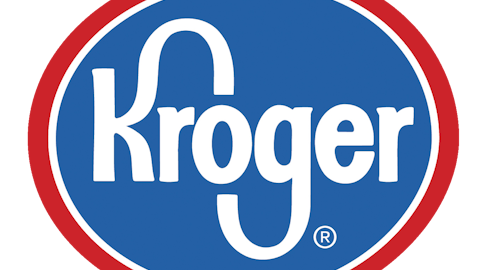
In no industry is time arbitrage a more profitable strategy than in consumer retail. Short-term traders tend to give heavy weight to quarterly same-store sales figures and similar measures that rarely provide any insight into the long-run prospects of the retailer. This provides many excellent opportunities for long-term investors to scoop up bargains after a quarterly miss.
A decent prospect
Although it is a few quarters removed from its most recent disappointment, Kohl’s Corporation (NYSE:KSS) remains in the bargain bin due to short-term fears despite a healthy long-term outlook.
The company reported slower-than-expected same-store-sales growth last November, which spooked the market into a large sell-off. Although the stock price has retraced its losses, the company remains undervalued.
For one, Kohl’s Corporation (NYSE:KSS) increased offering of private label products has enabled the firm to increase its margins significantly. In fact, its gross margins and pre-tax margins are higher than those of Target Corporation (NYSE:TGT) and J.C. Penney Company, Inc. (NYSE:JCP).

That Kohl’s Corporation (NYSE:KSS) consistently earns a higher operating margin than both Target Corporation (NYSE:TGT) and J.C. Penney is no small feat. Target is a significantly larger company with superior economies of scale. Meanwhile, J.C. Penney Company, Inc. (NYSE:JCP) has traditionally sold higher-margin products than Kohl’s. Despite the lack of a clear advantage in any one area, Kohl’s Corporation (NYSE:KSS) responsible growth strategy enables it to out-earn its toughest rivals.
Thankfully, J.C. Penney is much less of a competitive threat today than it was before Ron Johnson attempted to transform the company. As a result of the failed transformation, J.C. Penney is scrambling to return to its old strategy — the one that led to the precipitous drop-off in its margins in the first place.
Even as J.C. Penney Company, Inc. (NYSE:JCP) backtracks from Johnson’s audacious plan, it has decided to focus on a younger — and more fashionable — crowd than it has traditionally served. This is unlikely to play well with the company’s core customer base, and will probably lead to continued shortfalls in same-store sales.
Although J.C. Penney is floundering, Target Corporation (NYSE:TGT) is still a formidable competitor for Kohl’s Corporation (NYSE:KSS). Target and Kohl’s both fared much better during the recent recession than J.C. Penney. In addition, Target’s REDcard initiative has boosted same-store sales and its Canadian store openings are driving top-line growth.
However, Target’s foray into the food business will inevitably lead to declining margins over time. The company’s grocery section attracts more foot traffic into its stores, but the square footage and capital investment required to maintain the food aisle will hamper the chain’s profitability in the long run.
Investment case
As a slow and steady grower, Kohl’s Corporation (NYSE:KSS) is in a better position than its peers in terms of current profitability and future growth prospects. The company has yet to fully penetrate the Northeastern United States, and its continued adoption of private label products serves as potential margin expansion.
Over the last four quarters, the company earned $4.22 per share — an 8.3% earnings yield on its recent share price. Over the last decade, however, the company grew earnings per share at a compound annual rate in excess of 10%.
If Kohl’s can grow earnings per share over the next decade at just half the rate that it grew over the last decade, then investors will get a return in excess of 13%. For a consistently profitable retailer with a runway for growth, that is a pretty good bargain.
The article Take Advantage of Short-Term Volatility and Buy This Long-Term Value originally appeared on Fool.com and is written by Ted Cooper.
Ted Cooper has no position in any stocks mentioned. The Motley Fool has no position in any of the stocks mentioned. Ted is a member of The Motley Fool Blog Network — entries represent the personal opinion of the blogger and are not formally edited.
Copyright © 1995 – 2013 The Motley Fool, LLC. All rights reserved. The Motley Fool has a disclosure policy.





